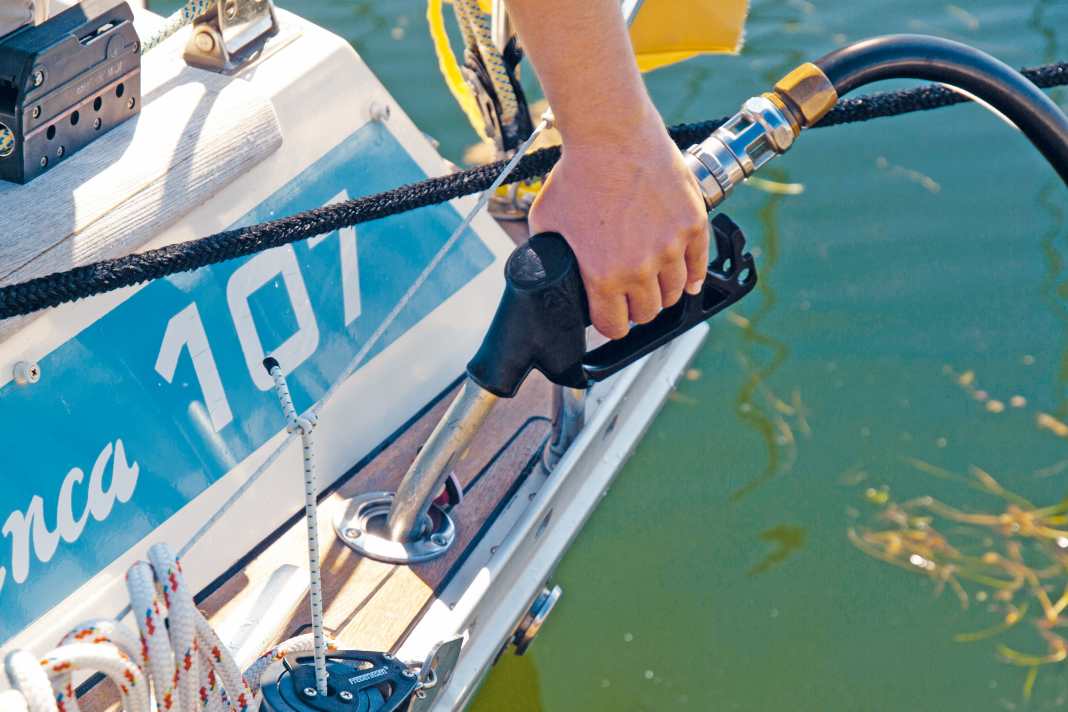Biodiesel HVO100: Eco-fuel reduces diesel pest - now available for everyone
Andreas Fritsch
· 29.05.2024



HVO100 (100 refers to the recycled content) was actually supposed to be available at petrol stations in Germany over a month ago. However, the necessary ordinance was only published yesterday in the Federal Law Gazette. As of today, biodiesel can therefore also be legally refuelled in road traffic.
Technically, the synthetic diesel HVO100 produced from waste such as cooking oil or residues from the cellulose industry is a particularly useful innovation for boat owners: unlike fuel mixed with biodiesel, synthetic diesel does not absorb water and can be stored for up to ten years without any biocides. Diesel pest, which is usually caused by the water content in biodiesel, is finally no longer an issue. This also means that the various expensive and sometimes toxic additives available on the market are largely superfluous if the owner consistently fills up with HVO. The miracle fuel also burns cleaner than conventional diesel, hardly smells at all and reduces CO₂ emissions by 90 to 95 per cent.
The environmental and CO₂ footprint of even decades-old diesels on yachts is thus suddenly improved. A big step for the environment.
Not every petrol station already has HVO100 diesel
The only disadvantage: the eco-fuel has its price, on average around 15 to 20 cents more per litre. However, given the long list of advantages and the small quantities of diesel that many owners only consume, many owners are unlikely to care. What is more difficult is the availability of HVO diesel at petrol stations, because not all of them have it. On the Internet there are now Various maps showing the HVO petrol stationsbut such a map does not yet exist specifically for boat refuelling stations.
Many owners have been doing their own thing for years: those who wanted to prevent diesel pest often bought biofuel-free mineral oil products at petrol stations, such as Aral's Ultimate Diesel. This is also significantly more expensive and protects against diesel plague, but does not have the good CO₂ balance of HVO diesel. So if you've been going down the canister route up to now, you should simply look for an HVO petrol station near your home or on the way to the boat.
From an environmental point of view, it would be desirable if as many boat fuelling station operators as possible switched to HVO diesel as quickly as possible, or at least made it available for selection. The less than ideal canister filling would soon be a thing of the past and many owners would probably be prepared to spend a few cents more for a better product.
More about sustainability:
Federal Environment Agency wanted to stop biodiesel
The release of the new diesel at German petrol stations took a particularly long time in Germany, whereas in Scandinavia or Holland it was much quicker. Discussions between the transport and environment committees of the Bundesrat (upper house of the German parliament) on adapting the ordinance on the implementation of the Federal Immission Control Act were already held in January. was postponed, which delayed the process. However, another reason was the Federal Environment Agency, which wanted to prevent palm oil-based HVO products from coming into circulation, as these would have a more critical environmental footprint.
However, the Bundestag has called on the government with a motion for a resolution to adapt the guidelines so that HVO100 can generally be sold like conventional diesel. Especially as the HVO100 offered here comes mainly from the manufacturer Neste. The Finnish producer assures that no palm oil is used in the production process.
